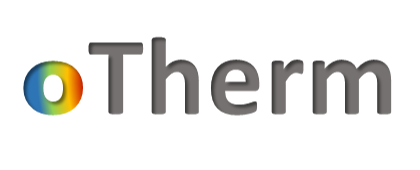otherm-docs

Documentation for the oTherm project
Project Overview
The oTherm project aims to lower the cost and complexity of conducting monitoring and verification (M&V) studies of renewable thermal technologies deployed for the heating and cooling of buildings. The project consists of three main components: (1) a web-based application that serves as the primary data management tool (2) a separate set of Python scripts for accessing and analyzing data, using ground source heat pump as an example technology, and (3) a set of Best Practices documents that guide data providers on what capabilities are expected for an oTherm monitoring system and M&V practitioners on establishing a monitoring and verification program to meet their specific needs.
By standardizing the data collection and documentation of individual M&V projects, there is a greater ability to share data between projects that would collectively improve the rate at which clean heating and cooling technologies are adopted and deployed.
This site serves as the landing page for project documentation, as itemized in the table below.
Documentation
| Resource | Description |
|---|---|
| Getting Started | Setting up an oTherm app instance |
| oTherm code repository | oTherm application source code |
| Data model specifications | A deep dive into the oTherm data models |
| API Documentation | Accessing oTherm data through APIs |
| GSHP analytics repository | Python scripts for analyzing oTherm GSHP data |
| GSHP analytics documentation | Read the Docs documentation of GSHP scripts |
| Best Practices Documents | Data Providers |
| Data Users | |
| Data Dictionary Design Documents | Device Level Data |
| Facility Level Data |
At the conclusion of the grant, the R&D oTherm instance that is hosted by the UNH Interoperability Lab will be available R&D Site
About the oTherm Project
The oTherm project was initiated as part of discussions in the Renewable Thermal Alliance (RTA). With support of an RTA Innovation Grant, the University of New Hampshire (UNH) began work on data dictionaries. Subsequently, UNH partnered with the New York State Research and Development Authority (NYSERDA) and the Yale Center for Business and the Environment to secure a grant from the U.S. Department of Energy, Office of State Energy Programs(DE-EE0008619 ) to build a functional prototype. The UNH Interoperability Lab has been instrumental in the development work throughout the process.
Disclaimer
These materials were prepared as an account of work sponsored by an agency of the United States Government. Neither the United States Government nor any agency thereof, nor any of their employees, makes any warranty, express or implied, or assumes any legal liability or responsibility for the accuracy, completeness, or usefulness of any information, apparatus, product, or process disclosed, or represents that its use would not infringe privately owned rights.
Reference herein to any specific commercial product, process, or service by trade name, trademark, manufacturer, or otherwise does not necessarily constitute or imply its endorsement, recommendation, or favoring by the United States Government or any agency thereof. The views and opinions of authors expressed herein do not necessarily state or reflect those of the United States Government or any agency thereof.